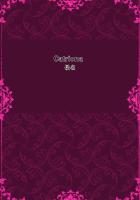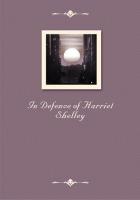Nevertheless she rose and lit my mother's fire and brought up her breakfast, and then had to return to bed. She was not able to write her daily letter to me, saying how my mother was, and almost the last thing she did was to ask my father to write it, and not to let on that she was ill, as it would distress me. The doctor was called, but she rapidly became unconscious. In this state she was removed from my mother's bed to another. It was discovered that she was suffering from an internal disease. No one had guessed it.
She herself never knew. Nothing could be done. In this unconsciousness she passed away, without knowing that she was leaving her mother. Had I known, when I heard of her death, that she had been saved that pain, surely I could have gone home more bravely with the words, Art thou afraid His power fail When comes thy evil day?
Ah, you would think so, I should have thought so, but I know myself now. When I reached London I did hear how my sister died, but still I was afraid. I saw myself in my mother's room telling her why the door of the next room was locked, and I was afraid. God had done so much, and yet I could not look confidently to Him for the little that was left to do. 'O ye of little faith!' These are the words I seem to hear my mother saying to me now, and she looks at me so sorrowfully.
He did it very easily, and it has ceased to seem marvellous to me because it was so plainly His doing. My timid mother saw the one who was never to leave her carried unconscious from the room, and she did not break down. She who used to wring her hands if her daughter was gone for a moment never asked for her again, they were afraid to mention her name; an awe fell upon them. But I am sure they need not have been so anxious. There are mysteries in life and death, but this was not one of them. A child can understand what happened. God said that my sister must come first, but He put His hand on my mother's eyes at that moment and she was altered.
They told her that I was on my way home, and she said with a confident smile, 'He will come as quick as trains can bring him.'
That is my reward, that is what I have got for my books.
Everything I could do for her in this life I have done since I was a boy; I look back through the years and I cannot see the smallest thing left undone.
They were buried together on my mother's seventy-sixth birthday, though there had been three days between their deaths. On the last day, my mother insisted on rising from bed and going through the house. The arms that had so often helped her on that journey were now cold in death, but there were others only less loving, and she went slowly from room to room like one bidding good-bye, and in mine she said, 'The beautiful rows upon rows of books, ant he said every one of them was mine, all mine!' and in the east room, which was her greatest triumph, she said caressingly, 'My nain bonny room!' All this time there seemed to be something that she wanted, but the one was dead who always knew what she wanted, and they produced many things at which she shook her head. They did not know then that she was dying, but they followed her through the house in some apprehension, and after she returned to bed they saw that she was becoming very weak. Once she said eagerly, 'Is that you, David?' and again she thought she heard her father knocking the snow off his boots. Her desire for that which she could not name came back to her, and at last they saw that what she wanted was the old christening robe. It was brought to her, and she unfolded it with trembling, exultant hands, and when she had made sure that it was still of virgin fairness her old arms went round it adoringly, and upon her face there was the ineffable mysterious glow of motherhood. Suddenly she said, 'Wha's bairn's dead? is a bairn of mine dead?' but those watching dared not speak, and then slowly as if with an effort of memory she repeated our names aloud in the order in which we were born. Only one, who should have come third among the ten, did she omit, the one in the next room, but at the end, after a pause, she said her name and repeated it again and again and again, lingering over it as if it were the most exquisite music and this her dying song. And yet it was a very commonplace name.
They knew now that she was dying. She told them to fold up the christening robe and almost sharply she watched them put it away, and then for some time she talked of the long lovely life that had been hers, and of Him to whom she owed it. She said good-bye to them all, and at last turned her face to the side where her best-beloved had lain, and for over an hour she prayed. They only caught the words now and again, and the last they heard were 'God' and 'love.' I think God was smiling when He took her to Him, as He had so often smiled at her during those seventy-six years.
I saw her lying dead, and her face was beautiful and serene. But it was the other room I entered first, and it was by my sister's side that I fell upon my knees. The rounded completeness of a woman's life that was my mother's had not been for her. She would not have it at the price. 'I'll never leave you, mother.' - 'Fine I know you'll never leave me.' The fierce joy of loving too much, it is a terrible thing. My sister's mouth was firmly closed, as if she had got her way.
And now I am left without them, but I trust my memory will ever go back to those happy days, not to rush through them, but dallying here and there, even as my mother wanders through my books. And if I also live to a time when age must dim my mind and the past comes sweeping back like the shades of night over the bare road of the present it will not, I believe, be my youth I shall see but hers, not a boy clinging to his mother's skirt and crying, 'Wait till I'm a man, and you'll lie on feathers,' but a little girl in a magenta frock and a white pinafore, who comes toward me through the long parks, singing to herself, and carrying her father's dinner in a flagon.















